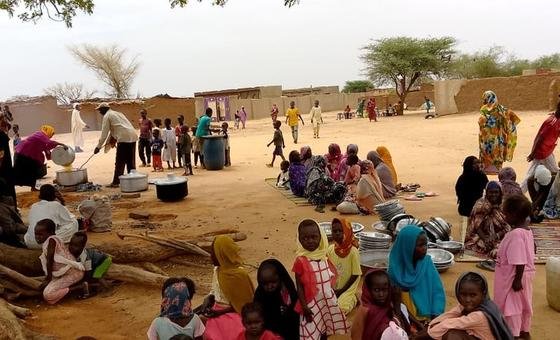Famine-like conditions at the Zamzam camp for displaced people have already been confirmed, UN Secretary-General’s spokesman Stephane Dujarric told reporters in New York on Monday. He feared that a similar situation might occur in other camps in the area.
Al Fashar is the last town in North Darfur under the control of the Sudanese army, which is being fought back by rival paramilitary forces (RSF).
Atrocities also took place in other parts of the province. At least four children were killed and four wounded in Friday’s airstrike in Al Quma, the United Nations Children’s Fund said.
The lives of millions of children in Sudan are at risk due to violent conflict and the spread of disease.
The violence, which shows a complete disregard for the safety and rights of children, must stop, said Sheldon Yate, UNICEF’s representative in Sudan.
A country in crisis
It has been 18 months since the start of violent conflict between the armed forces and paramilitaries in Sudan, which has displaced 10 million people. Half of this number are children.
Fierce fighting has damaged the country’s infrastructure, disrupted basic services and left large numbers of people in need of humanitarian assistance.
More than 150 schools, hospitals and care centers have been attacked since the war began in April last year. The safety and well-being of young people is affected by residential areas being vulnerable to attack.
UN spokesman Dujarric said tens of thousands of people have been displaced in Sudan since early October due to airstrikes, clashes and insecurity near villages.
Health crisis
The current situation has not only affected the health of children but has also created conditions for the spread of diseases.
Sudan’s health care system is already fragile and is now on the brink of collapse. Sanitation and hygiene infrastructure is poor and diseases like dengue, malaria, measles, cholera are spreading simultaneously.
Out of the 18 provinces of the country, 12 are affected by this disease.
According to a UN spokesperson, more than 21,000 cases of cholera have been reported in the past two months and more than 600 deaths have been confirmed.
UNICEF has increased its vaccination efforts to respond to this critical threat and has sent 1.4 million doses of oral cholera vaccine to Port Sudan.
The vaccination campaign is ongoing and a target has been set to vaccinate more than 18 lakh people in the areas worst affected by cholera.

